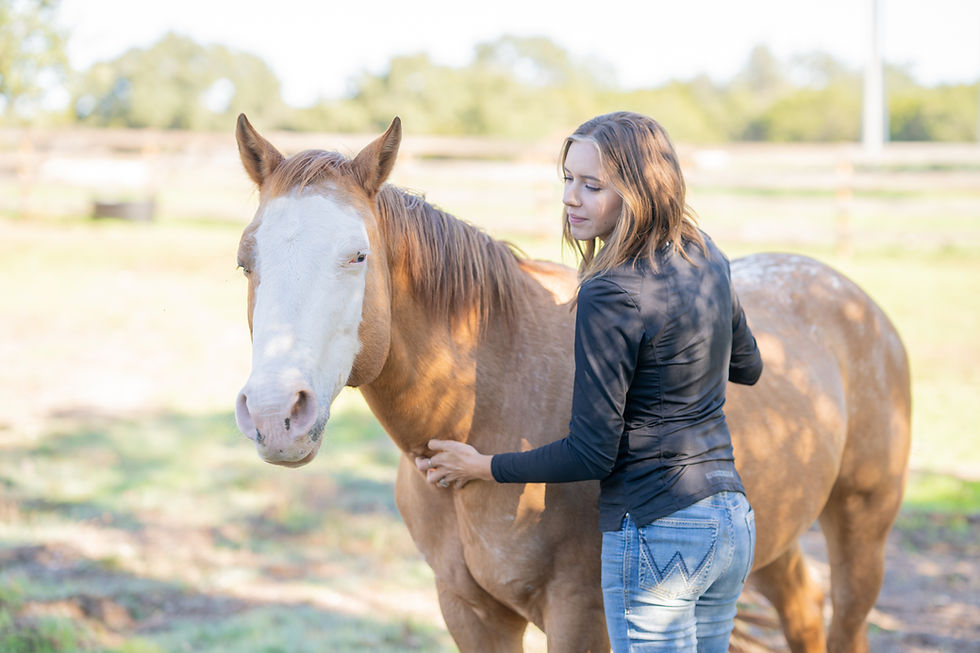Our Behavior Makes A Difference
- Adele Shaw
- Jan 23, 2020
- 3 min read

"Severe punishment unquestionably has an immediate effect in reducing a tendency to act in a given way. This result is no doubt responsible for its widespread use. We 'instinctively' attack anyone whose behavior displeases us - perhaps not in physical assault, but with criticism, disapproval, blame, or ridicule. Whether or not there is an inherited tendency to do this, the immediate effect of the practice is reinforcing enough to explain its currency. In the long run, however, punishment does not actually eliminate behavior from a repertoire, and its temporary achievement is obtained at tremendous cost in reducing the over-all efficiency and happiness of the group"
- B.F. Skinner, Science and Human Behavior
I talk a lot about why we shouldn't use punishment-based training approaches. (i.e. Smacking a horse that bites, backing up a pushy horse, using a crop on a horse that refuses a jump, "moving their feet" to a horse who refused to load into a trailer, nose chain popping a factitious horse, etc) But I think it's of value to point out that all I talk about applies to our relationships and interactions with other equestrians/people too. Believe it or not, behavior and mental well being is impacted through interactions on social media and in person. Our comments towards one another can fall within a reinforcing or a punishing category, and they will have lasting impacts on both those at the receiving end and at the giving end.
We also need to recognize that we too are experiencing reinforcement or punishment by our actions... And where punishment towards others is involved, we are being reinforced. It's quick, it temporarily suppresses behavior, and then we feel like "it worked! We did it. Yay us". We are reinforced by the shift in the actions of the one we punished.. but as Skinner points out, punishment doesn't actually remove the behavior, and it comes at a tremendous cost.
When it comes to horses, we see this reinforcement for us happen when the horse temporarily stops biting after we strike them. Or when the horse that was getting dangerously pushy all the sudden is standing "politely" (usually scared) at the end of the rope after we abruptly backed them up. R+ for us! Our brain goes "Yay us! We fixed the problem. If it happens again, we should do it again!"
When it comes to people, we see this a lot in negative social media comments. Let's say someone posts something that strikes a nerve in more than one person who sees the post. Suddenly their comment sections are filled with comments that range from "I don't agree" to "you're a terrible person that deserves to die". The original poster is likely to feel quite stressed and punished by this experience, and will likely refrain from posting something similar in the future, or may even take the post down and issue an apology. The punishing followers will then be reinforced for this behavior because they fixed the problem! "Yay us!" They are even more likely to do so again in the future.
I could go on and on with examples, but I think you get the point. It's okay that we don't like what someone says on social media, and it's okay that we don't want our horses to be pushy, but we need to realize that the way with which we work to modify the behavior of those around us (horse or human) not only directly impacts them at an emotional and mental level, it ALSO impacts us. Sometimes, what feels good to us in the moment is quite terrible for the one receiving. Thankfully, there is more than one way to change someone's behavior. We should strive to use the way that is reinforcing (or least aversive) to both them and us if we wish to make a positive impact on the world around us, and to have healthy relationships.
- Adele




